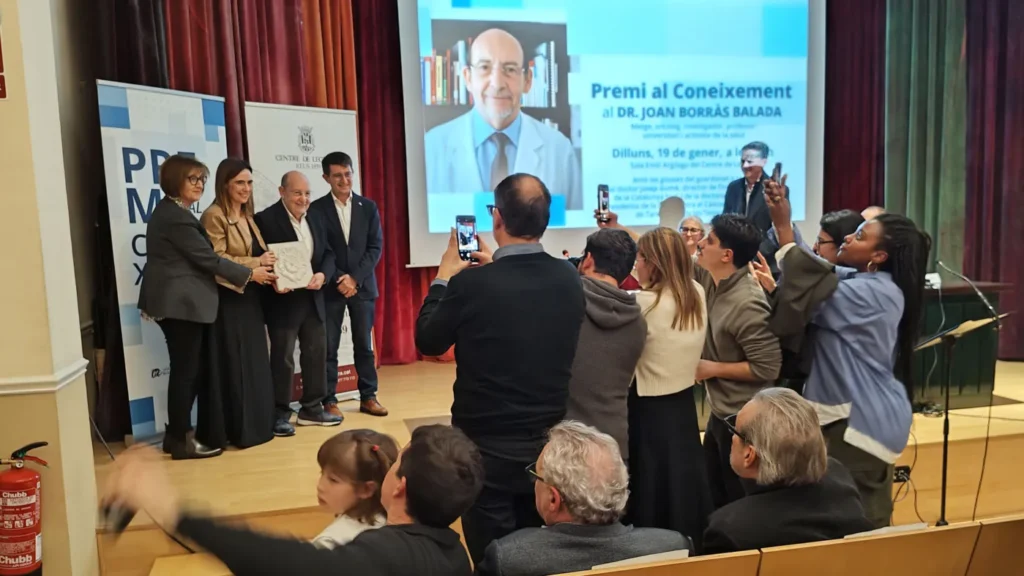A new study by IRB CatSud and ISGlobal links teenagers’ nutrition with emotional wellbeing, cognitive performance, and long‑term decision‑making
Adolescence is a key period for brain development, and eating habits play an essential role in this process. A new study led by the Institut de Recerca Biomèdica Catalunya Sud (Southern Catalonia Biomedical Reseach Institute – IRB CatSud, formerly IISPV), includes the participation of the Barcelona Institute for Global Health (ISGlobal), a centre supported by the “la Caixa” Foundation, shows that eating ultra‑processed foods is linked to more emotional and behavioural difficulties. On the other hand, following the Mediterranean diet is associated with better executive function. The study, titled Dietary Patterns and Neuropsychological Function in Adolescents: A Cross-sectional and Longitudinal Study, has been published in BMC Medicine.
The study, carried out by the Clinical and Epidemiological Neuroscience Research Group (NeuroÈpia) at IRB CatSud. The research analyses data from a sample of 653 adolescents aged 12 to 16 from the metropolitan area of Barcelona (Smart-Snack study). It highlights the importance of nutrition during adolescence, a stage where the brain is still developing, especially the prefrontal cortex, which is involved in decision‑making and impulse control.
Eating habits were assessed using food‑frequency questionnaires that measured adherence to the Mediterranean diet and the intake of ultra‑processed foods. Neuropsychological function was evaluated through standardised computerised tests that measured attention, working memory, fluid intelligence, decision‑making, and emotional recognition. Behavioural and emotional outcomes were also assessed using validated questionnaires.
Opposite effects on the teen brain
The results show clear differences between the two eating patterns. According to Alexios Manidis, the lead researcher, a higher intake of ultra‑processed foods—such as sugary drinks, industrial pastries, and ultra-processed meats—is linked to poorer performance in emotional recognition and sustained attention. Teenagers who consume more ultra‑processed foods also report more symptoms of anxiety and depression, as well as more behavioural problems.
In contrast, greater adherence to the Mediterranean diet—rich in fruits, vegetables, legumes, and olive oil—is linked to fewer behavioural problems and better scores in executive attention.
However, in the six-month follow-up, only initial ultra-processed food consumption showed longitudinal associations with internalizing symptoms and decision-making, while Mediterranean diet adherence showed no longitudinal effects. “This may suggest that Mediterranean diet benefits require ongoing adherence, while the effects of ultra-processed foods may be more persistent,” comments Manidis, reinforcing the importance of maintaining healthy habits consistently.
Objective validation through biomarkers
The study also analysed urinary biomarkers in a subsample of 257 participants. The results show that adolescents who consume more ultra‑processed foods have fewer compounds from plant‑based foods and more compounds linked to food processing, confirming the reliability of dietary questionnaires.
Christopher Papandreou, Assistant Professor at the Hellenic Mediterranean University (Crete, Greece) and senior co-author of the study, notes that “teenagers’ diets are shifting towards ultra-processed foods” and warns that this change “may be contributing to the rise in mental health problems among young people”.
Jordi Julvez, head researcher of the NeuroÈpia Research Group at the IRB CatSud and ISGlobal, reminds us that “adolescence is a period of great brain reorganisation” and explains that diet “can influence how teenagers regulate their emotions and make complex decisions”.
The researchers conclude that future strategies, such as replacing processed snacks in schools with nutrient‑dense options like nuts and fresh fruit, could be effective in improving emotional regulation and cognitive function in the long term.
Bibliographic reference of the study
Manidis, A., Ayala-Aldana, N., Bernardo-Castro, S., Pinar-Martí, A., Galkina, P., Fernández-Barrés, S., Ramirez-Carrasco, P., Lamuela-Raventós, R. M., Papandreou, C., & Julvez, J. (2026). Dietary patterns and neuropsychological function in adolescents: a cross-sectional and longitudinal study. BMC Medicine, 10.1186/s12916-026-04658-6. Advance online publication. https://doi.org/10.1186/s12916-026-04658-6
A study led by the Diabetes and Associated Metabolic Diseases (DIAMET) group at the Institut de Recerca Biomèdica Catalunya Sud (IRB CatSud, formerly IISPV) shows that liver fibrosis and type 2 diabetes significantly modify the hormonal response after eating in people with fatty liver associated with metabolic dysfunction (MASLD). The research, published in the Journal of Physiology and Biochemistry, examines how both conditions affect the secretion of essential hormones for glucose control—such as glucagon and the incretins (GLP‑1, GLP‑2 and GIP)—after a standardized meal.
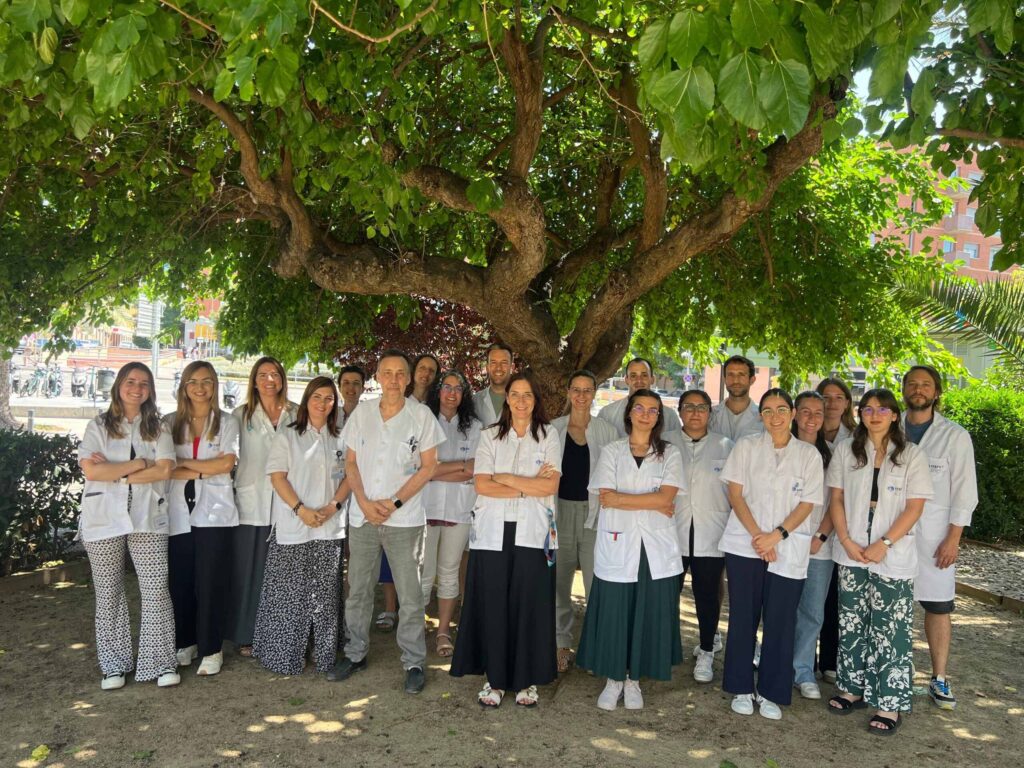
The results show that liver fibrosis is the most important factor influencing the increase in GLP‑1 levels, both in fasting conditions and after the meal, regardless of whether the patient has diabetes. In addition, when liver fibrosis and type 2 diabetes occur together, hormonal changes become stronger, suggesting a synergistic effect between both conditions. Type 2 diabetes is also linked to the loss of the normal suppression of glucagon after eating, a key process to keep blood glucose within healthy ranges.
These findings reinforce the idea that a fibrotic liver is not a passive organ, but plays an active role in metabolic dysregulation. Fibrosis not only reflects past damage but also contributes to generating new hormonal alterations. Understanding these changes is essential to improve clinical assessment and move towards more personalised treatments for MASLD.
With the growing prevalence of MASLD and type 2 diabetes, understanding how these conditions interact at the hormonal level is crucial to improve early diagnosis and optimise treatments based on the incretin–glucagon axis. The study provides evidence that can help identify subgroups of patients who may benefit from more specific therapeutic approaches, with a direct impact on clinical practice.
Overall, the results confirm that liver fibrosis is a central determinant of GLP‑1 levels, and that the coexistence of type 2 diabetes further intensifies these hormonal alterations. This knowledge highlights the need to design therapeutic strategies adapted to the metabolic and liver profile of each patient, especially in a context where both diseases are becoming increasingly common.
The study involved researchers from the Universitat Rovira i Virgili (URV), the Institut d’Investigacions Biomèdiques August Pi i Sunyer (IDIBAPS) – Hospital Clínic Barcelona, the research networks of the Instituto de Salud Carlos III (ISCIII) — the Centro de Investigación Biomédica en Red de Diabetes y Enfermedades Metabólicas Asociadas (CIBERDEM) and the Centro de Investigación Biomédica en Red de Enfermedades Hepáticas y Digestivas (CIBEREHD) — as well as the Hospital Universitari Joan XXIII (Tarragona).
The grants, with more than €270,000 in funding, support advanced projects in personalized radiotherapy and artificial intelligence. A third grant is aimed at specialized training in molecular oncology
The Spanish Association Against Cancer in Tarragona presented on Thursday, 19 February, the three grants awarded for the 2025 call. These grants show a strong commitment to cancer research and to the goal of reaching a 70% cancer survival rate by 2030.
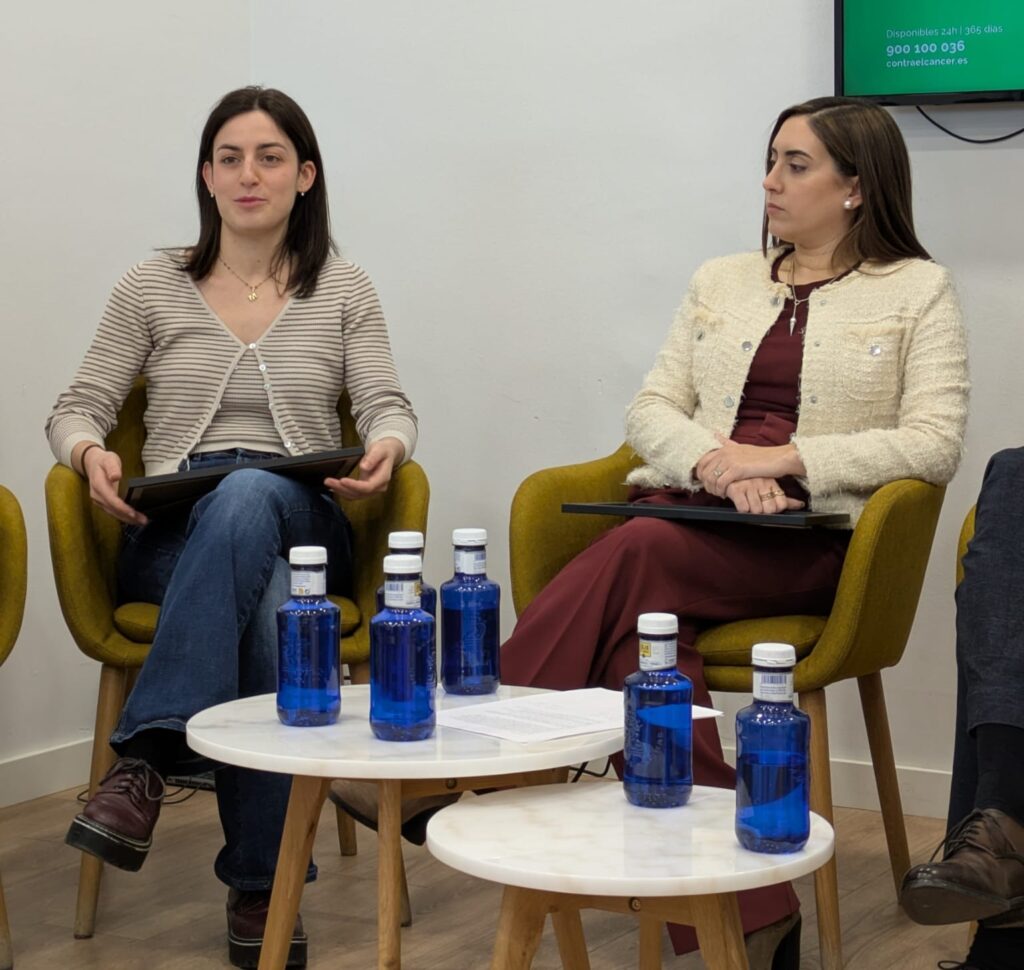
Two of the funded researchers work at the Institute of Biomedical Research of Southern Catalonia (IRB CatSud, formerly IISPV). They lead projects that combine technology, innovation, and clinical impact: Dr Bárbara Antonia Malavé and Marta Canela.
Dr Bárbara Antonia Malavé has received the Clinic Junior Grant AECC 2025, supporting a project focused on improving radiotherapy treatment for prostate cancer. The project uses advanced biomarkers and artificial intelligence to adapt treatments to each patient. The grant provides €154,000 over four years.
Also at IRB CatSud, Marta Canela has received the AECC Tarragona Predoctoral Grant 2025. Her research combines medical imaging and blood analysis to predict how patients with lung cancer will respond to radiotherapy. The grant provides €110,660 over four years.
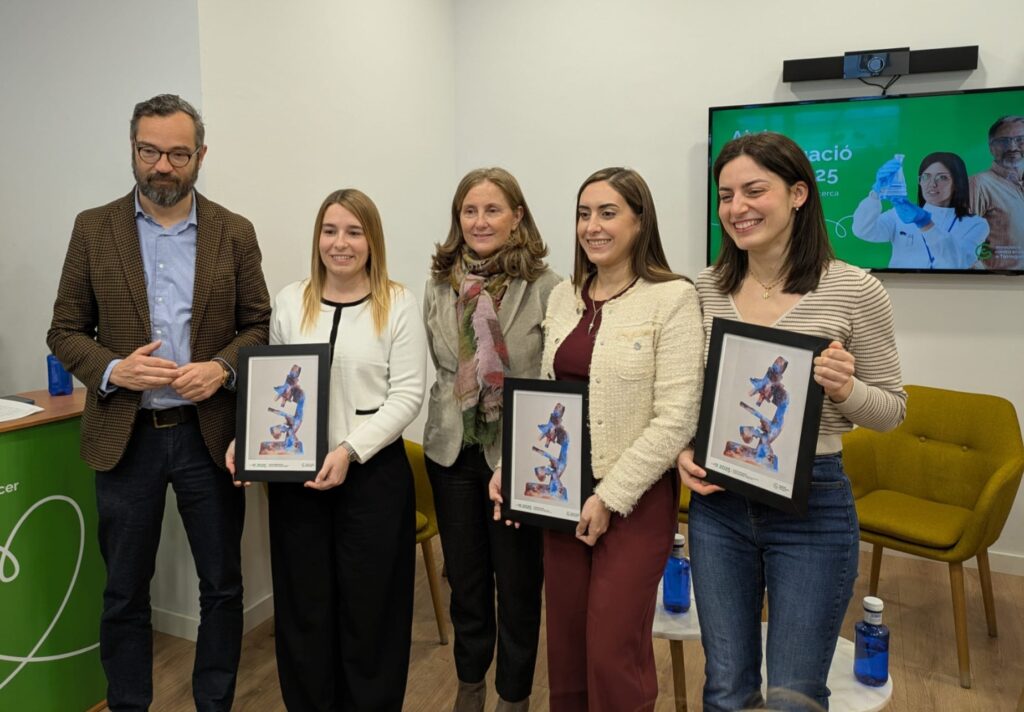
The third grant has been awarded to Maria Guirro, who will receive the Clinic Training Grant AECC 2025. The €7,100 contribution will allow her to complete the Master’s Degree in Molecular Oncology (MOM).
This action is part of a series of meetings that the Departament is carrying out in CERCA centres, with the aim of learning about their situation first-hand
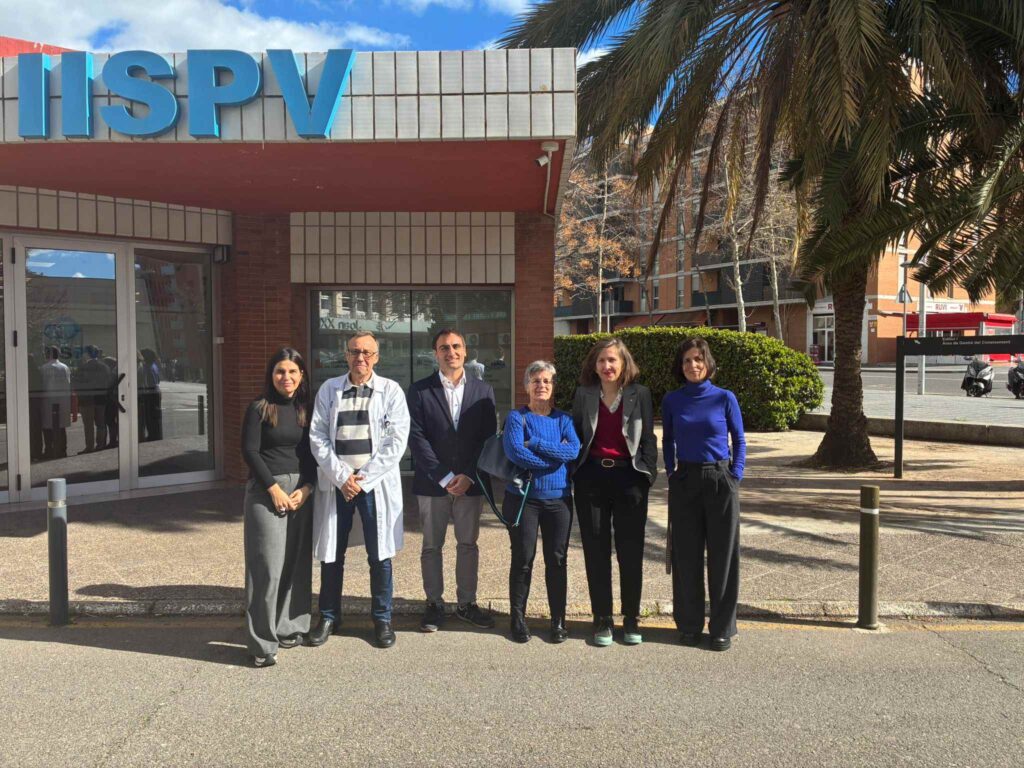
The Direcció General de Recerca (DGR) of the Govern de Catalunya has recently announced the start of a series of institutional visits to research centres across the region. One of the first visits in the area took place at the Southern Catalonia Institute of Biomedical Research (IRB CatSud, formerly IISPV). The meeting was held last Tuesday, 17 February, at the Institute’s headquarters in Tarragona.
The visit was attended by the Direcció General de Recerca, Teresa Sanchis, and the General Deputy of Recerca, Eva Pérez. Representing the Institute were the director, Joan Vendrell; the deputy director, Elisabet Vilella; the manager, Francesc López; and the head of the technical office, Elisabet Galve.
This action is part of a broader initiative aimed at strengthening direct knowledge of CERCA centres and of the different actors in the Catalan research system. The purpose of these meetings is to understand, directly and from the department’s perspective, the reality, needs, and strategic lines of each centre, with the intention of reinforcing institutional collaboration and improving public policies that support research.
For IRB CatSud, this visit is an opportunity to show the centre’s impact on the research ecosystem of Camp de Tarragona and Terres de l’Ebre, as well as to highlight its projects and research team.
A collaborative study from CIBERDEM-ISCIII shows that abdominal fat speeds up vascular ageing and increases the risk of long-term vascular complications, even before obesity appears.
A research team from the Parc Taulí Research and Innovation Institute (I3PT), together with the Pere Virgili Health Research Institute (IISPV) and the Hospital del Mar Research Institute (IMIM), has identified a clear link between abdominal fat accumulation and early vascular ageing in people with type 1 diabetes who have no previous cardiovascular disease.
The study was carried out with a group of 179 people with this condition, all evaluated at Parc Taulí University Hospital under the coordination of José Miguel González-Clemente, endocrinologist and head of the diabetes–cardiovascular risk group at I3PT, and Joan Vendrell, IISPV researcher, co-leader of the DIAMET research group and member of CIBERDEM-ISCIII.
Even though the participants had good control of blood glucose, blood pressure and lipid levels, around 10% showed signs of early vascular ageing. This is an important factor in the development of cardiovascular and microvascular complications that directly affect quality of life and life expectancy.
“In type 1 diabetes, insulin treatment is essential to control blood glucose, but over the years it can lead to gradual weight gain and a higher risk of complications,” González-Clemente explains. He adds that abdominal fat can accumulate before general obesity appears, especially visceral fat, which is metabolically active and strongly linked to artery damage. “This type of fat reduces arterial elasticity, a process related to the degradation of elastin, a key protein in the vascular wall. It may contribute to complications such as heart attack, stroke, circulation problems in the legs, or damage to the retina, kidneys and peripheral nerves.”
The waist-to-height ratio, a tool to detect early vascular ageing
To easily identify people at higher risk, the study highlights the waist-to-height ratio, calculated by dividing waist circumference by height, both in centimetres. The results show that a value of 0.56 or higher is linked to accelerated vascular ageing, measured through pulse wave velocity, a non-invasive technique that assesses arterial stiffness. “Almost all people with high pulse wave velocity had a waist-to-height ratio of 0.56 or more,” González-Clemente notes, adding that other common indicators, such as body mass index or waist-to-hip ratio, are less effective at detecting this risk.
The findings, published in Diabetes Research and Clinical Practice, underline the importance of preventing weight gain and monitoring abdominal fat as a preventive strategy. “Early control of this index would allow intervention before obesity develops, improve metabolic control and reduce the risk of long-term vascular complications,” he concludes.
The researchers point out that the next step is to confirm these results in larger cohorts with longer follow-up. The study also suggests that some drugs used in people with type 2 diabetes to reduce weight might also be useful in type 1 diabetes, although more clinical evidence is still needed.
The donation will support the Institute’s research lines on diabetes, especially those focused on prevention, diagnosis, and treatment
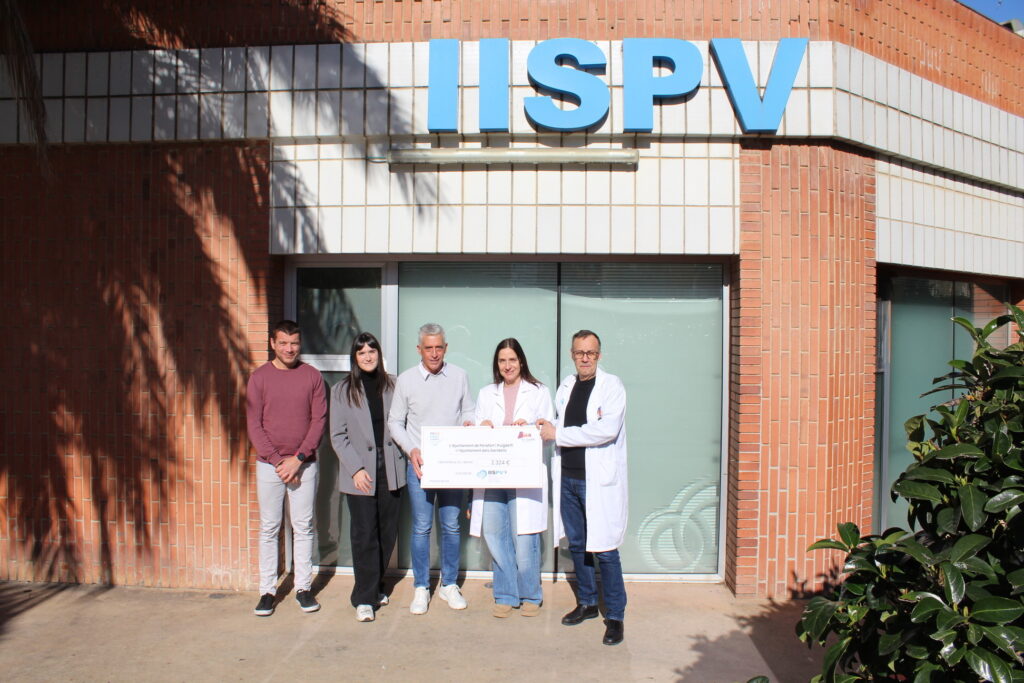
The town councils of Perafort and Puigdelfí and Els Garidells have donated the funds raised during the charity walk ‘Take a Step Against Diabetes’ to the Pere Virgili Health Research Institute (IISPV). The total amount, €2,324, will be used to support research on diabetes, particularly in the areas of prevention, diagnosis, and treatment of this and other metabolic diseases. The event, organised by both councils, took place on 23 November 2025 and celebrated its 10th edition, coinciding with the 20th anniversary of the Institute.
During the ceremony to hand over the symbolic cheque, several representatives of the organising institutions attended: the event’s promoter, Sergi Vernet; the Sports Councillor of Perafort, Xavi Prim; and the Housing and Social Welfare Councillor of Els Garidells, Marta Duque. Representing the IISPV were the director and leader of the Diabetes and Associated Metabolic Diseases Group (DIAMET), Joan Vendrell, and also DIAMET group leader, Sonia Fernández Veledo. The DIAMET group is the beneficiary of the funds, which will help continue its research projects in the field of diabetes.
The donation was made possible thanks to the participation of local residents and the support of organisations and businesses in the area. As highlighted during the cheque presentation by both the organising councils and IISPV representatives, this contribution “strengthens the collective commitment to diabetes research” and shows the “social awareness of a disease that has a major impact on the region”. The aim of the walk is not only to support research but also to promote healthy lifestyle habits.
Over its 10 editions, the charity walk ‘Take a Step Against Diabetes’ has raised a total of €11,000, which has been used to support ongoing diabetes research projects at the Institute.
A study of 746 older people followed for six years identifies a “microbial signature” associated with this dietary pattern and more favourable cognitive ageing
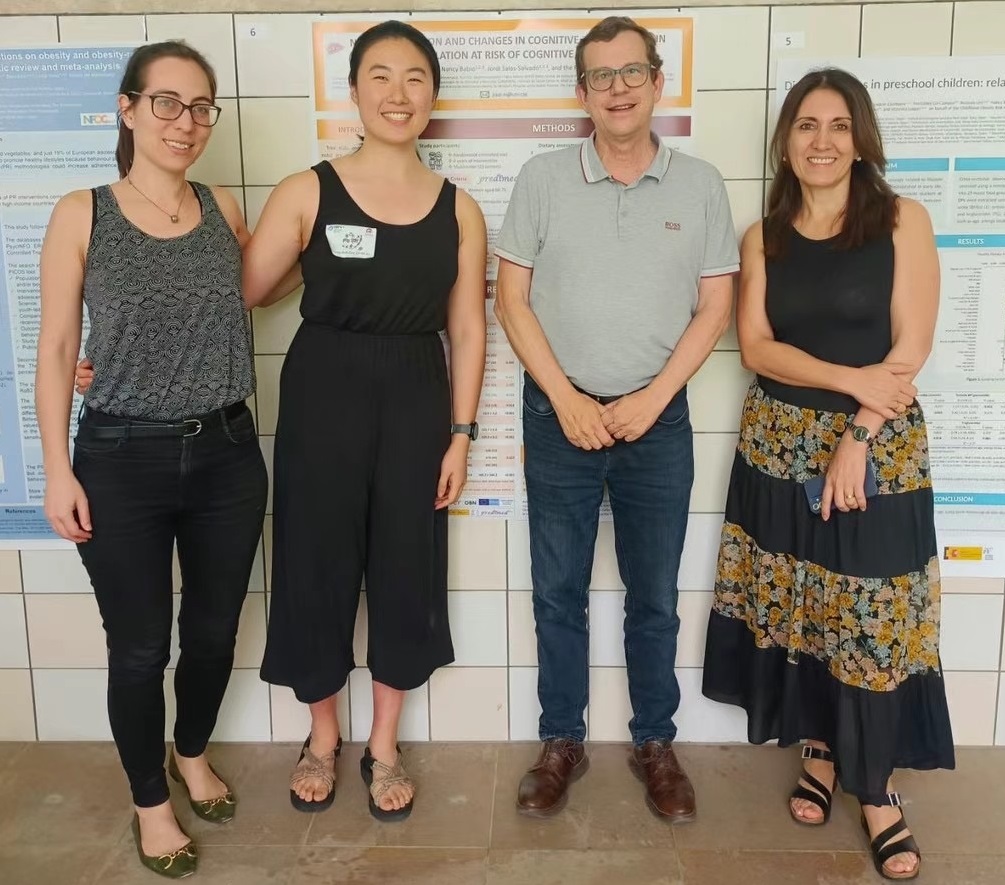
Following a Mediterranean diet not only benefits the heart and metabolism, but could also help preserve cognitive function as ageing progresses. This is according to research led by the Rovira i Virgili University (URV), the IISPV and CIBERobn, which shows how this dietary pattern is associated with a healthier gut microbiota and slower cognitive decline in older adults with overweight or obesity and metabolic syndrome.
The study, published in the journal BMC Medicine, analysed data from 746 older adults at high cardiometabolic risk, who were followed for six years. The research team assessed adherence to the Mediterranean diet, the composition of the gut microbiota and the progression of cognitive function over time. The results indicate that those who most faithfully followed this dietary pattern had a more favourable gut microbiota and a more positive cognitive trajectory.
One of the most innovative aspects of the work is the identification of a “microbial fingerprint” characteristic of the Mediterranean diet. This new biomarker, based on the presence and abundance of certain gut bacteria associated with this type of diet, is also linked to slower cognitive decline. According to the authors, this finding provides new clues about the biological mechanisms that explain the benefits of the Mediterranean diet on the brain.
Eix intestí-cervell
Cognitive function includes abilities such as memory, attention, learning, language and decision-making, which are essential for maintaining autonomy in everyday life. In parallel, the gut microbiota is composed of trillions of bacteria that are involved in key processes such as digestion, immunity and the production of substances that influence the body’s functioning. In recent years, research has revealed the existence of the so-called gut-brain axis, a bidirectional communication system through which intestinal microorganisms can produce compounds that reach the brain and affect its functioning.
“Aquest estudi demostra que la microbiota intestinal és una peça clau en els beneficis cognitius de la dieta mediterrània”, explica Jiaqi Ni, primera autora del treball i investigadora predoctoral de la URV. “Els nostres resultats suggereixen que alguns bacteris intestinals associats a una major adherència a aquest patró alimentari podrien protegir davant del deteriorament cognitiu”.
En la mateixa línia, el catedràtic de la URV Jordi Salas-Salvadó, director de l’estudi, destaca que “identificar una empremta microbiana associada a la dieta mediterrània obre noves oportunitats per dissenyar intervencions nutricionals o microbianes orientades a promoure un envelliment cognitiu saludable”. De la seva banda, les investigadores del Departament de Bioquímica i Biotecnologia de la URV Nancy Babio i Stephanie K. Nishi subratllen la rellevància dels resultats en un context d’envelliment poblacional i augment de la prevalença de la demència, i apunten que millorar la qualitat de la dieta és una estratègia senzilla i accessible amb beneficis reals per a la salut cerebral.
El treball ha estat liderat per la investigadora predoctoral Jiaqi Ni i dirigit per Jordi Salas-Salvadó, Nancy Babio i Stephanie K. Nishi, membres de la Unitat de Nutrició Humana del Departament de Bioquímica i Biotecnologia de la URV, amb la col·laboració d’investigadors del consorci PREDIMED-Plus. L’estudi s’emmarca en una recerca multicèntrica que contribueix a aprofundir en la relació entre alimentació, microbiota intestinal i salut cerebral al llarg de l’envelliment.
Referència bibliogràfica: Ni J, Hernández-Cacho A, Nishi SK, Babio N, Belzer C, Konstati P, Vioque J, Corella D, Castañer O, Vidal J, Moreno-Indias I, Torres-Collado L, Coltell O, Fitó M, Ruiz-Canela M, Wang DD, Tinahones FJ, Salas-Salvadó J. Mediterranean diet, gut microbiota, and cognitive decline in older adults with obesity/overweight and metabolic syndrome: a prospective cohort study. BMC Med. 2025 Dec 1;23(1):669. doi: 10.1186/s12916-025-04488-y.
• The IUNS ACTIVATOR project will analyse the gaps in nutrition research in Asia and how these gaps affect health policies
• The initiative aims to give a stronger voice to the Asian continent in scientific literature and to prepare it to face current nutritional challenges
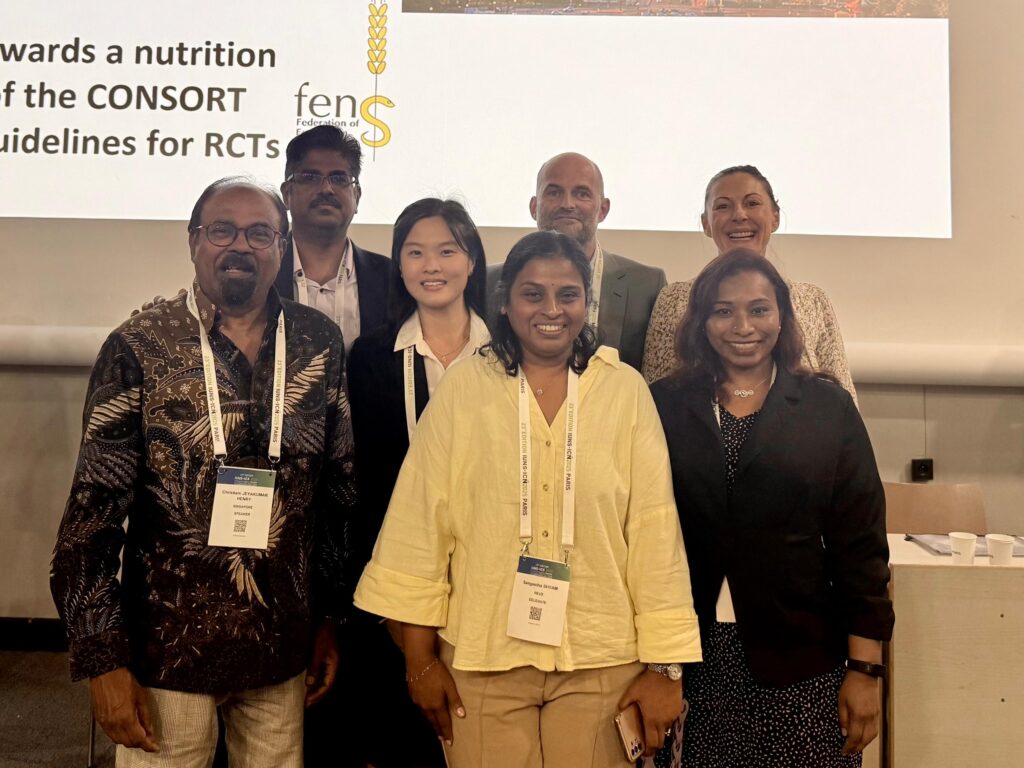
A project led by the Institut de Recerca Biomèdica Catalunya Sud (Southern Catalonia Biomedical Research Institute – IRB CatSud, formerly IISPV) and Universitat Rovira i Virgili (URV) will assess the current situation of nutrition research in Asia, identifying the main gaps and needs in this field. This work is supported by a 5,000 dollar grant from the International Union of Nutritional Sciences (IUNS).
With this funding, the IUNS ACTIVATOR team will work over the next four years to evaluate nutrition research, reflect on how it matches regional priorities, and explore its impact on public health policies. The project will also focus on encouraging efforts to produce relevant scientific evidence at regional level, aiming to improve people’s health through mentoring and the involvement of key stakeholders.
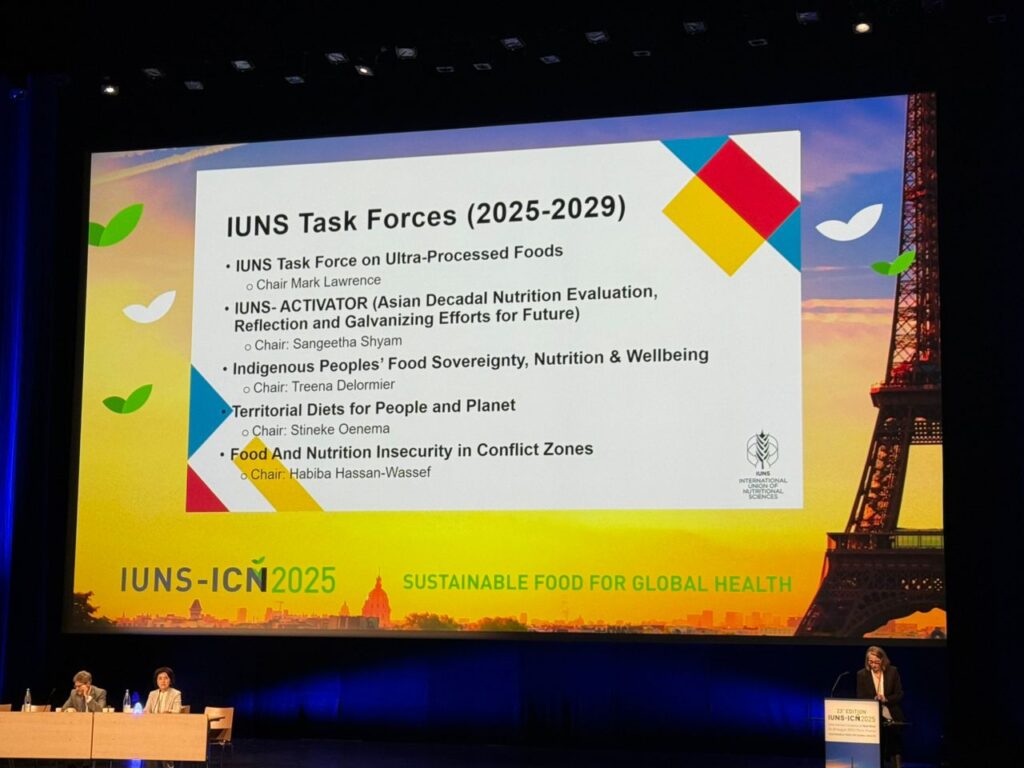
“Carrying out this study is important because Asian countries are still underrepresented in global scientific literature. It is essential to identify their needs in the field of nutrition to understand whether research in Asia is ready to face its specific challenges, especially during a nutritional transition and the growing burden of non communicable diseases,” says Sangeetha Shyam, IISPV URV researcher, involved in the IUNS ACTIVATOR project: ‘Asian Decadal Nutrition Assessment, Reflection and Activation of Efforts for the Future’.
The project team includes 26 researchers from 13 countries in Asia and Europe, with expertise in nutrition, meta research and scientific communication. Another goal of the study is to involve young researchers to ensure the relevance and long term sustainability of the proposed solutions.
A study from URV, with participation from IISPV, compares abdominal ultrasound with magnetic resonance imaging and shows the potential of this technique to detect early risk of prediabetes and metabolic syndrome in people with abdominal obesity
The distribution of body fat, especially the fat accumulated in the abdomen, is a key factor in the risk of developing metabolic and cardiovascular diseases. However, not all abdominal fat has the same impact on health: subcutaneous fat, located under the skin, does not carry the same risks as visceral fat, which is stored deeper and can come into direct contact with vital organs. Identifying which type of fat is more predominant in a person is essential to assess metabolic risk and to guide clinical interventions. In this context, a study led by researchers from the Department of Medicine and Surgery at the Universitat Rovira i Virgili (URV), with the participation of research staff from the IISPV, analysed how useful and reliable abdominal ultrasound can be for measuring visceral fat, compared with magnetic resonance imaging, which is currently considered the reference technique.
In clinical practice, the risk associated with abdominal fat is usually assessed by measuring waist circumference. However, this simple method is limited because it cannot distinguish between subcutaneous and visceral fat. Imaging techniques such as magnetic resonance imaging or computed tomography provide this information with high accuracy, but they are expensive, require specialised equipment, and are not easily available in primary care. To explore more accessible alternatives, the research team aimed to validate the use of abdominal ultrasound to characterise fat distribution. “Ultrasound is available in most primary care centres and hospitals, and with trained health professionals it allows real-time imaging at a very low cost,” explains Claudia Jiménez-ten Hoevel, researcher at the Department of Medicine and Surgery at the URV and co-author of the article.
The key question was how similar the results of ultrasound could be to those of magnetic resonance imaging when analysing abdominal fat. To answer this, the team worked with a sample of 113 adult volunteers with abdominal obesity, living in Reus and nearby areas. All participants underwent both a magnetic resonance imaging scan and an abdominal ultrasound within a short period —between three and four days— to ensure comparable results.
A valid and accurate tool
The results of the study, published in Diabetes, Obesity and Metabolism, show that visceral fat measurements obtained through ultrasound had good agreement with those obtained through magnetic resonance imaging. However, the researchers also found some limitations of ultrasound when measuring subcutaneous fat, something that previous studies had already suggested. “The main conclusion is that ultrasound can be especially useful when the goal is to identify visceral fat, which is the type most clearly linked to metabolic risk,” says Anna Pedret, researcher from the same department. This potential adds to the fact that ultrasound is easy to use for trained staff and is available in most health centres.
Visceral fat: an indicator of metabolic risk
The analysis also allowed the researchers to explore whether the amount of visceral fat measured by ultrasound could predict future metabolic problems. The results show a relationship between high levels of visceral fat and the presence of prediabetes —a condition where blood sugar levels are high but still below the threshold for type 2 diabetes— as well as metabolic syndrome —a group of risk factors that increase the likelihood of cardiovascular disease.
More specifically, the study identifies a level of visceral fat above which the risk of associated diseases increases significantly. For example, a thickness of 7.35 centimetres or more is linked to a higher risk of prediabetes, while from 5.77 centimetres there is a relationship with the probability of metabolic syndrome. These findings highlight the potential of ultrasound as an exploratory tool: “Including abdominal ultrasound in routine clinical practice, especially in nutrition and primary care, could improve risk assessment and allow more personalised interventions,” the researchers explain.
The research group Nutrició Funcional, Oxidació i Malalties Cardiovasculars (NFOC-SALUT) from the URV and the Institut d’Investigació Sanitària Pere Virgili (IISPV) continues working to promote the use of ultrasound as an affordable, fast, and easily applicable technique in clinical practice. The team is now studying the impact of abdominal fat distribution in other population groups and its relationship with different health conditions, such as cognitive function or sarcopenia. In this context, the group is carrying out new studies using abdominal ultrasound in people aged 60 to 74, with ongoing research and open participation. Interested individuals can contact the team at estudisalimentacionfocsalut@gmail.com.
Bibliographic reference: Jiménez-Ten Hoevel C, Besora-Moreno M, Queral J, Llauradó E, Valls RM, Solà R, Pedret A. Ultrasound and MRI abdominal fat distribution and its associations with metabolic conditions in adults with abdominal obesity. Diabetes Obes Metab. 2025 Dec 17. DOI: 10.1111/dom.70390. Epub ahead of print. PMID: 41403258.
The Institut d’Investigació Sanitària Pere Virgili (IISPV) celebrates the recognition given to Dr Joan Borràs Balada, deputy director of the Oncology Institute of Southern Catalonia and researcher linked to our institute, who has recently received the 2026 Knowledge Prize from the City Council of Reus.